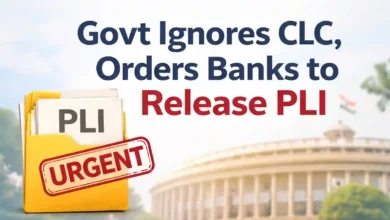Who is DGMO in Indian Army? Understand their Roles and Job Profile

In a significant step toward reducing tensions, India and Pakistan agreed on Saturday to halt all military actions on land, in the air, and at sea, starting at 5:00 PM IST the same day. The announcement was made by Foreign Secretary Vikram Misri, who confirmed that the decision followed a key phone call between the military leaderships of both nations.
“The Director General of Military Operations (DGMO) of Pakistan contacted the Indian DGMO at 3:35 PM, and both sides agreed to stop all firing and military action from 5:00 PM IST today,” said Misri. This marks the first official ceasefire understanding following the April 22 Pahalgam terror attack, which triggered heightened military readiness on both sides.
In this article, we will know about DGMO – Who are DGMOs and their role in Indian Army.
Who Are the DGMOs?
The DGMOs (Directors General of Military Operations) are senior officers in the Indian and Pakistani armies—usually of the rank of Lieutenant General in India and Major General in Pakistan. They are tasked with overseeing all military operations, especially along borders.
India’s current DGMO is Lieutenant General Rajiv Ghai, who took over on October 25, 2024. His Pakistani counterpart is Major General Kashif Abdullah.
Understand the Hierarchy in the Indian Army
The Indian Army has categorized its soldiers and officers in two categories: Non-Commissioned Officers and Commissioned Officers. Non-Commissioned Officers and Commissioned Officers are further subdivided into various categories.
Non-Commissioned Officers (NCOs):
- Sepoy: Entry-level rank.
- Lance Naik: First promotion in the rank structure.
- Naik: Next promotion after Lance Naik.
- Havildar: A senior rank within the NCOs.
- Naib Subedar: Senior NCO.
- Subedar: Senior NCO, often responsible for troop administration and training.
- Subedar Major: The most senior NCO rank, serving as a senior advisor to the commanding officer.
Commissioned Officers:
- Lieutenant: Entry-level rank for officers.
- Captain: Commands a company.
- Major: Leads a company or a specialized unit.
- Lieutenant Colonel: Often commands a battalion or serves as second-in-command.
- Colonel: Commands a full battalion.
- Brigadier: Leads a brigade, overseeing multiple battalions.
- Major General: Commands a division, responsible for tactical and operational planning.
- Lieutenant General: Commands a corps, overseeing multiple divisions.
- General: The Chief of Army Staff.
- Field Marshal: An honorary, five-star rank, usually for exceptional service.
Lieutenant General is appointed as DGMO and oversees military operations in India. General and Field Marshal are the only two posts above Lieutenant General (DGMO).
What Does a DGMO Do?
The DGMO plays a central role in military strategy and coordination during both peace and conflict. Their responsibilities include:
- Planning and supervising military operations, including combat, counter-terrorism, and peacekeeping.
- Ensuring the Indian Army’s operational readiness.
- Maintaining communication with Pakistan through weekly hotline calls, especially during border tensions.
- Acting as the first line of contact between the two militaries in case of conflict or misunderstandings.
- Liaising between the Army, Navy, Air Force, and intelligence agencies for joint operations.
- Advising the Chief of the Army Staff (COAS) and reporting to the Ministry of Defence on operational matters.
- Coordinating sensitive ceasefire agreements and handling violations on India’s borders.
Why Are DGMOs So Important?
The DGMOs serve as trusted military contacts between nations during crises. They help:
- Prevent misunderstandings by clarifying military movements or intentions.
- Reduce escalation during tense periods.
- Enforce or renegotiate ceasefires when needed.
- Provide a channel of professional communication, separate from political messaging.
Even in peacetime, DGMO-level talks are held regularly to keep communication open and address technical or operational issues such as troop movements and border incidents.
Strategic Importance of the Role
Given their access to real-time military intelligence and high-level decision-makers, DGMOs can act quickly and decisively during crises. They are uniquely positioned to address border incidents, cross-border shelling, or violations in a controlled and informed manner.
